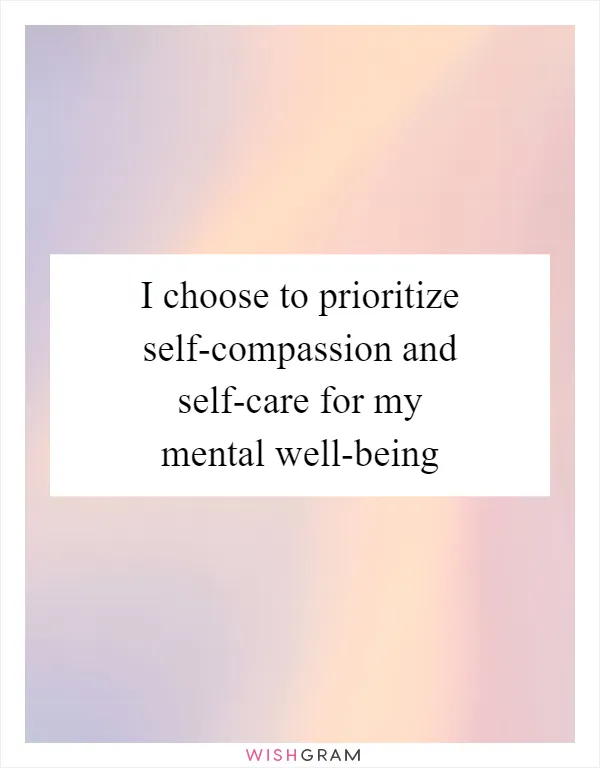I choose to prioritize self-compassion and self-care for my mental well-being
Taking care of your mental health is just as important as taking care of your physical health. It's easy to get caught up in the hustle and bustle of everyday life and forget to prioritize your own well-being. That's why it's important to affirm to yourself that you choose to prioritize self-compassion and self-care for your mental well-being.
Self-compassion means treating yourself with kindness and understanding, just as you would treat a friend. It means acknowledging your own struggles and giving yourself the same support and encouragement you would give to someone else. Self-care means taking intentional actions to care for your physical, emotional, and mental health.
Prioritizing self-compassion and self-care can have a positive impact on your mental health. When you take care of yourself, you are better equipped to handle stress and challenges. You are more resilient and better able to bounce back from difficult situations. You are also more likely to have a positive outlook on life and feel more satisfied with your overall well-being.
One way to prioritize self-compassion and self-care is to make time for yourself. This could mean taking a few minutes each day to meditate or practice deep breathing exercises. It could mean going for a walk or doing some other form of physical activity that you enjoy. It could also mean setting aside time to do something you love, like reading a book or listening to music.
Another way to prioritize self-compassion and self-care is to practice self-acceptance. This means accepting yourself for who you are, flaws and all. It means recognizing that you are human and that it's okay to make mistakes. It also means being kind to yourself and not being too hard on yourself when things don't go as planned.
It's important to seek help when you need it. This could mean talking to a trusted friend or family member, or it could mean seeking professional help from a therapist or counselor. There is no shame in asking for help, and it's important to remember that you don't have to go through difficult times alone.
